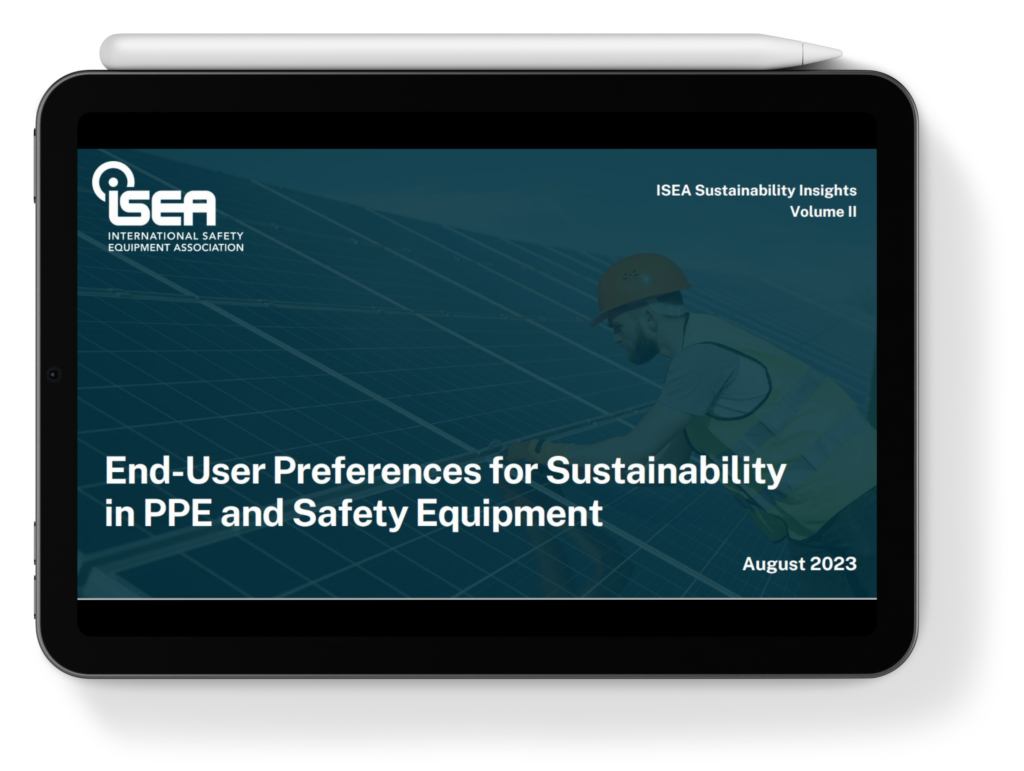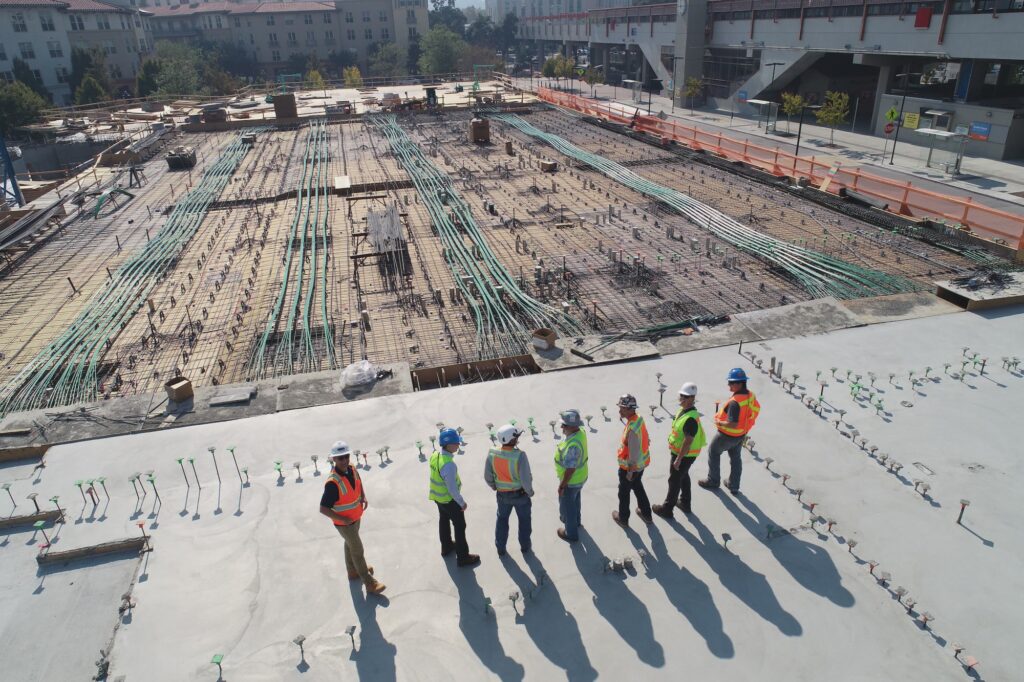80% of End Users Consider PPE Sustainability Important….But Safety Matters Most
Sustainability is a growing priority for providers of personal protective (PPE) and safety equipment, according to a new study released by the International Safety Equipment Association (ISEA). Users of PPE and safety gear are also embracing sustainability, as they increasingly consider environmentally friendly factors when making a product purchase.
The new study, Protecting Workers and Planet: Sustainability in the PPE and Safety Equipment Industry, is a joint effort between ISEA, the American Society of Safety Professionals (ASSP) and EHS Today aimed at better understanding market needs and preferences as safety equipment suppliers are being challenges to offer products that protect workers and support sustainability goals. EHS (environment, health & safety) professionals and safety product suppliers participated in confidential surveys about current practices and needs, as well as expectations for the future.
“Over the last several years, the growth of sustainable products has skyrocketed, especially in the consumer world,” said ISEA President & CEO Cam Mackey. “And, while most businesses are still developing their own approach towards sustainable purchasing, now is the time for providers of PPE and safety equipment to prepare for a future where a certain degree of sustainability practices will likely be table stakes.”
Key Study Takeaways:
PPE & Safety Equipment Suppliers Are Already Embracing Sustainability
96% of safety equipment and PPE suppliers surveyed already have several sustainable business practices in place, and nearly half have formal, company-wide sustainability programs.
Safety Managers Take Sustainability Seriously
When selecting between brands of PPE and safety equipment, 80% of end-user safety managers say that sustainability is an important purchase criterion. This will only grow in importance over the next three years.
“OSH professionals are well positioned to influence change within their organizations to promote better sustainability practices,” said ASSP President Jim Thornton, CSP, CIH, FASSP, FAIHA. “Increased worker expectations in this area are prompting companies to invest in the future and to invest in people as part of the triple bottom line — people, planet and prosperity.”
Safety is Still Job #1
While sustainability is important, it will never take a back to seat to protecting workers. Sustainable products must perform and protect equally or more effectively than more traditional ones. One survey respondent, an EHS leader in industrial manufacturing, said, “The product’s safety attributes are most important. However, I will always select a product that falls under the sustainability umbrella before another product, cost notwithstanding.”
There is More to Come
Nearly all PPE suppliers and safety managers surveyed expect sustainability to only grow in importance over the next three years.
“The research clearly shows that companies are achieving tangible benefits from their sustainability and ESG programs, and safety professionals are among the most vocal in their support of sustainability initiatives,” said Dave Blanchard, Editor-in-Chief of EHS Today. “Investing in sustainable practices will be a winning strategy for PPE suppliers going forward.”
About ISEA
The International Safety Equipment Association (ISEA) is the trade association for technologies that keep workers safe. Its member companies, united in the goal of protecting the health and safety of workers worldwide, are global leaders in the design, manufacture, testing, and distribution of personal protective and safety equipment which protects more than 125 million workers across the U.S. Since 1933, ISEA has been a recognized leader in the development of ANSI-accredited safety equipment standards, in the United States and around the world. ISEA works with Congress and government agencies to consult with policymakers whose decisions affect the industry.
Nationwide, the safety equipment industry supports 345,001 total jobs and generates more than $71.6 billion in economic activity. In 2020, the safety equipment industry paid $5 billion in federal taxes and nearly $4 billion in state taxes, for a total tax generation of $9 billion. For more information visit safetyequipment.org.
Contact:
Nicole Randall
Director, Marketing & External Affairs
nrandall@safetyequuipment.org
+1 202.330.2432


